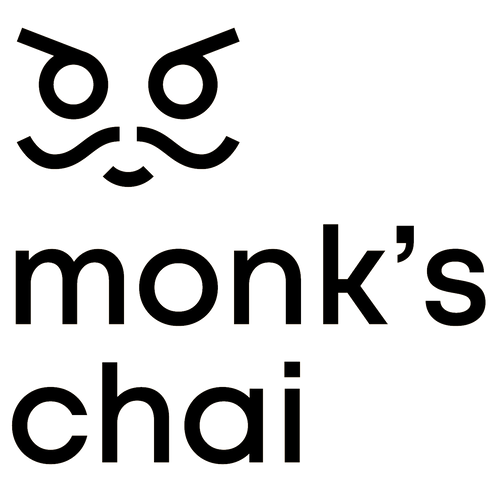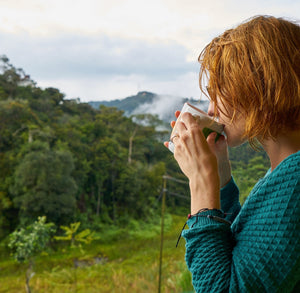Wondering when the best time to drink chai tea is? The short answer is - anytime! Whether you need a morning boost, an afternoon pick-me-up, or a soothing evening drink, chai can fit into any part of your day. But when is the perfect time to enjoy it? Let’s find out in this blog!
When is the Best Time to Drink Chai Tea
The best time to drink chai tea is in the morning or after meals. Here’s why:
Drinking chai in the morning gives you a gentle energy boost thanks to the caffeine in chai tea. Unlike coffee, chai provides a more balanced release of energy, helping you stay alert without the jitters. The spices in chai, like cinnamon and ginger, can also stimulate metabolism and enhance mental clarity, making it an excellent way to start your day (1).
Chai is also great after meals, as the warming spices such as cardamom, ginger, and cloves aid digestion and help reduce bloating and anti-inflammatory issues (2), (3), (4). Many traditional medicine practices, including Ayurveda, recommend drinking chai to support gut health and ease digestion after eating.
In short, the ideal time to drink chai is in the morning for energy and focus, or after meals for digestion, while being mindful of caffeine intake before bed.
Some notes when drinking tea in the evening
When drinking chai tea in the evening, there are a few things to keep in mind. Chai tea contains black tea which has caffeine, so it's important to keep the caffeine content in mind if you are sensitive to it (5). If you are trying to limit your caffeine intake in the evenings, you may want to consider opting for a decaf version of chai tea or a different herbal tea.
And if you’re able to, you should consider drinking chai tea at least a few hours before bedtime to allow your body to process the caffeine.
Overall, drinking chai tea in the evening is great to unwind and relax after a long day, as long as you keep in mind the caffeine content and timing of consumption.
How many cups of chai for a day?
There’s no one-size-fits-all answer—it depends on how much caffeine you can handle and your overall health. Most people can enjoy 1-3 cups a day without issues, but if you’re sensitive to caffeine, you might need to stick to 1-2 cups or switch to decaf later in the day.
Pay attention to how your body reacts. And if you fall into a category that requires extra caution, such as being pregnant, breastfeeding, having a specific medical condition, or taking medications that may interact with caffeine, it is highly advisable to consult with a healthcare professional.
They will be able to provide you with personalized guidance and determine an appropriate caffeine intake level that suits your unique circumstances. We also have a post on "Is chai tea safe during pregnancy?"
At the end of the day, moderation is key - enjoy your chai in a way that makes you feel good!
SHOP MONKS CHAI TODAY FOR THE BEST CHAI IN AUSTRALIA
Regardless if you are looking for better sleep or want to include Chai in your daily routine, Melbourne has several places where chai lovers and enthusiasts can enjoy or buy ingredients to brew Chai at home. Look no further than Monk’s Chai for the best organic chai in AU.
Monk’s Chai only uses organic ingredients, including Assam black tea, fresh Keralan ginger, pure Ceylon cinnamon, cardamom, and pimento. We source ethically grown and sustainably produced spices that encourage our community to thrive. We encourage you to begin the Chai experience today with Monk’s Chai.
Reference list:
(1) Sheikh Z (14 December 2023) ‘Chai Tea: Nutrition and Health Benefits’, https://www.webmd.com/diet/health-benefits-chai-tea
(2) Grzanna R, Lindmark L and Frondoza CG (2005) ‘Ginger—An Herbal Medicinal Product with Broad Anti-Inflammatory Actions’, Journal of Medicinal Food, 8(2). https://www.liebertpub.com/doi/abs/10.1089/jmf.2005.8.125
(3) Garza GRC, Luévano JHE, Rodríguez AFB, Montes AC, Hernández RAP, Delgado AJM, Velázquez UC and Luis OER (2021) ‘Benefits of Cardamom (Elettaria cardamomum (L.) Maton) and Turmeric (Curcuma longa L.) Extracts for Their Applications as Natural Anti-Inflammatory Adjuvants’. https://www.mdpi.com/2223-7747/10/9/1908
(4) Bachiega TF, Sousa JPB, Bastos JK and Sforcin JM (2012) ‘Clove and eugenol in noncytotoxic concentrations exert immunomodulatory/anti-inflammatory action on cytokine production by murine macrophages’, Journal of Pharmacy and Pharmacology, 64(4):610-616. https://academic.oup.com/jpp/article-abstract/64/4/610/6135328
(5) Jones K (n.d) ‘Chai Tea Benefits: Is Chai Latte Good For You?’. https://simpltea.com/chai-tea-latte-benefits/

